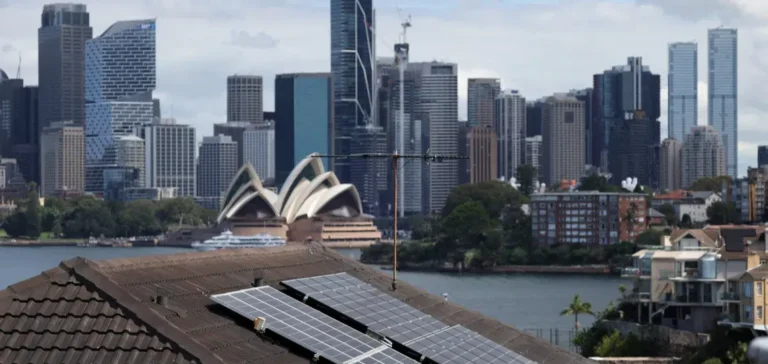Australia will launch a program called “Solar Sharer” in July 2026, allowing households to receive three hours of free electricity per day, under certain conditions. This offer will be available in several highly populated states, including New South Wales, which includes Sydney and Melbourne. Consumers will need to subscribe to this program and have a connected meter to benefit from it.
A Measure to Capitalize on Solar Surplus
This initiative aims to take advantage of the solar production surplus recorded in the middle of the day, a period when wholesale electricity prices are now often low or even negative. The Australian Department of Energy states that the country sometimes produces more electricity than it consumes during these hours, making it possible to redistribute free electricity while alleviating pressure on the grid.
Energy Minister Chris Bowen stated that this measure is part of a larger energy reform program. However, he clarified that it is not a panacea but rather one tool among others to better distribute electricity consumption throughout the day. The objective is also to reduce evening demand, when wholesale prices usually peak.
A Project Still Unclear in Terms of Implementation
The Australian Energy Council expressed disappointment at not being consulted prior to the announcement of the project. They also raised concerns about the regulatory complexities that could hinder the program’s implementation. The details on how energy suppliers will offer the “Solar Sharer” plan to their customers remain unclear, particularly regarding communication and pricing outside the free period.
The federal government plans to extend this offer across the entire country in 2027, contingent on the results observed in the first phase. This measure could also delay or reduce the need for network modernization investments by decreasing demand during critical hours.
An Energy Mix Still Dominated by Coal
Despite these initiatives, coal remains the dominant source of electricity in Australia. In 2024, it accounted for 46% of the country’s electricity production, with 128.5 TWh, according to the International Energy Agency (IEA). Coal-fired power plants emitted over 130 million tons of CO2 in 2023.
Photovoltaic solar energy, which has been steadily growing, generated 48.6 TWh in 2024, representing 17.4% of total electricity production, just ahead of natural gas. It has now become the second-largest source of electricity in the country. Australia continues to make significant investments in renewable energy, with substantial funding in both wind and solar power in recent years.






















